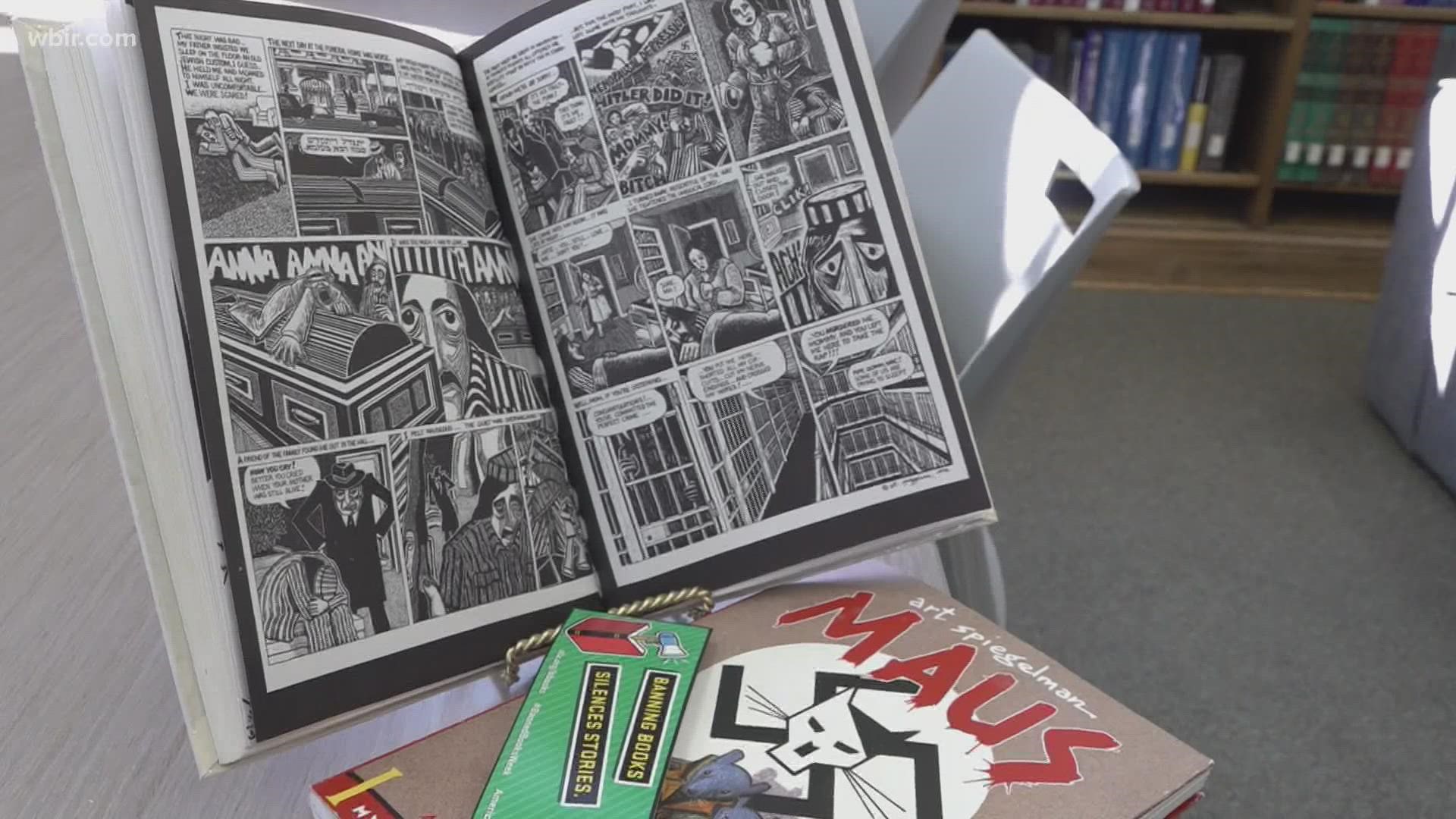MCMINN COUNTY, Tenn. — The McMinn County Board of Education voted unanimously to remove a book about the Holocaust from the school curriculum.
The vote was held during a called meeting on January 10.
Board members said the graphic novel called "Maus" by Art Spiegelman has inappropriate language and graphic depictions. In a statement on Facebook Thursday evening, the board said it felt the work was "simply too adult-oriented" to be in schools.
"One of the most important roles of an elected board of education is to reflect the values of the community it serves. The McMinn County Board of Education voted to remove the graphic novel Maus from McMinn County Schools because of its unnecessary use of profanity and nudity and its depiction of violence and suicide. Taken as a whole, the Board felt this work was simply too adult-oriented for use in our schools.
We do not diminish the value of Maus as an impactful and meaningful piece of literature, nor do we dispute the importance of teaching our children the historical and moral lessons and realities of the Holocaust. To the contrary, we have asked our administrators to find other works that accomplish the same educational goals in a more age-appropriate fashion. The atrocities of the Holocaust were shameful beyond description, and we all have an obligation to ensure that younger generations learn of its horrors to ensure that such an event is never repeated.
We simply do not believe that this work is an appropriate text for our students to study."
After discussing options like redacting portions of the book if given permission by the author or replacing the book with another book about the Holocaust, board members decided to remove the book from schools altogether.
This decision did not rest lightly among community members. Many felt it would limit the students' intellectual freedom.
A librarian at Tennessee Wesleyan University in McMinn County weighed in on the decision. Alex Sharp said the concept of "banning" books is something librarians have been fighting against for years.
"I'm saying if there is one parent who thinks their child should not read this, that is up to them, that is their prerogative. But, is it fair to tell every child and every parent that they're not allowed to read this book? I don't think so," Sharp said.
As previously mentioned, the main reasons the BOE removed the book were for nudity and eight words of profanity. Sharp said that was not an adequate reason, given the content students are exposed to on a daily basis.
"What does it mean when you choose to ban this book? Because it has eight swear words? Okay, I'm sorry. But children see more than eight swear words in one TikTok video nowadays, it's just the life we live," Sharp said.
She also pointed out that the nudity addressed in the novel was of a naked mouse.
"Let's remember that," Sharp said. "So, at least it's not a human in the nude."
However, Sharp's biggest concern with banning this book, in particular, is the dialogue the children will miss out on.
"If you ban a book outright, that cuts off any dialogue that there is to be had about that book. And I think that this is an important story, we have to have this conversation," Sharp said. "When we start banning books, we get into really dangerous territory where we are stunting our children, and not allowing them to have exposure to important ideas."
The novel's author, Art Spiegelman, spoke to CNBC Wednesday, saying he was "baffled" by the school board's decision.
Other people and organizations reacted to the banning, including the U.S. Holocaust Museum.
"Maus has played a vital role in educating about the Holocaust through sharing detailed and personal experiences of victims and survivors," the museum said. "Teaching about the Holocaust using books like Maus can inspire students to think critically about the past and their own roles and responsibilities today."
Hundreds of people invested in a copy of the book after the school board's announcement. One of those to purchase a copy was Ersa Henry.
"I was heartbroken that our school board would think it was okay to censor our young people's right to read in this county," Henry said.
She remembers reading the book when she was a student.
"There is nothing inherently wrong with this book, this novel. It is a gritting portrayal of what people had to endure during the Holocaust. And that should not be erased," Henry said.
According to Henry, people were buying the book to show support for the author, Art Spiegelman, as well as for Holocaust survivors and members of the Jewish community.
Both Henry and Sharp hope those purchases will send the school board a message.
"The backlash has probably made them think twice about the next thing they ban. And for that I'm really happy," Sharp said.
Sharp said the Merner Pfeiffer Library, where she works, is holding a banned-book week from September 18-24th this year. It's an annual tradition. However, 2022 will be the first year that "Maus" is on the list.
In 1992, Maus became the first graphic novel to win a Pulitzer Prize.

